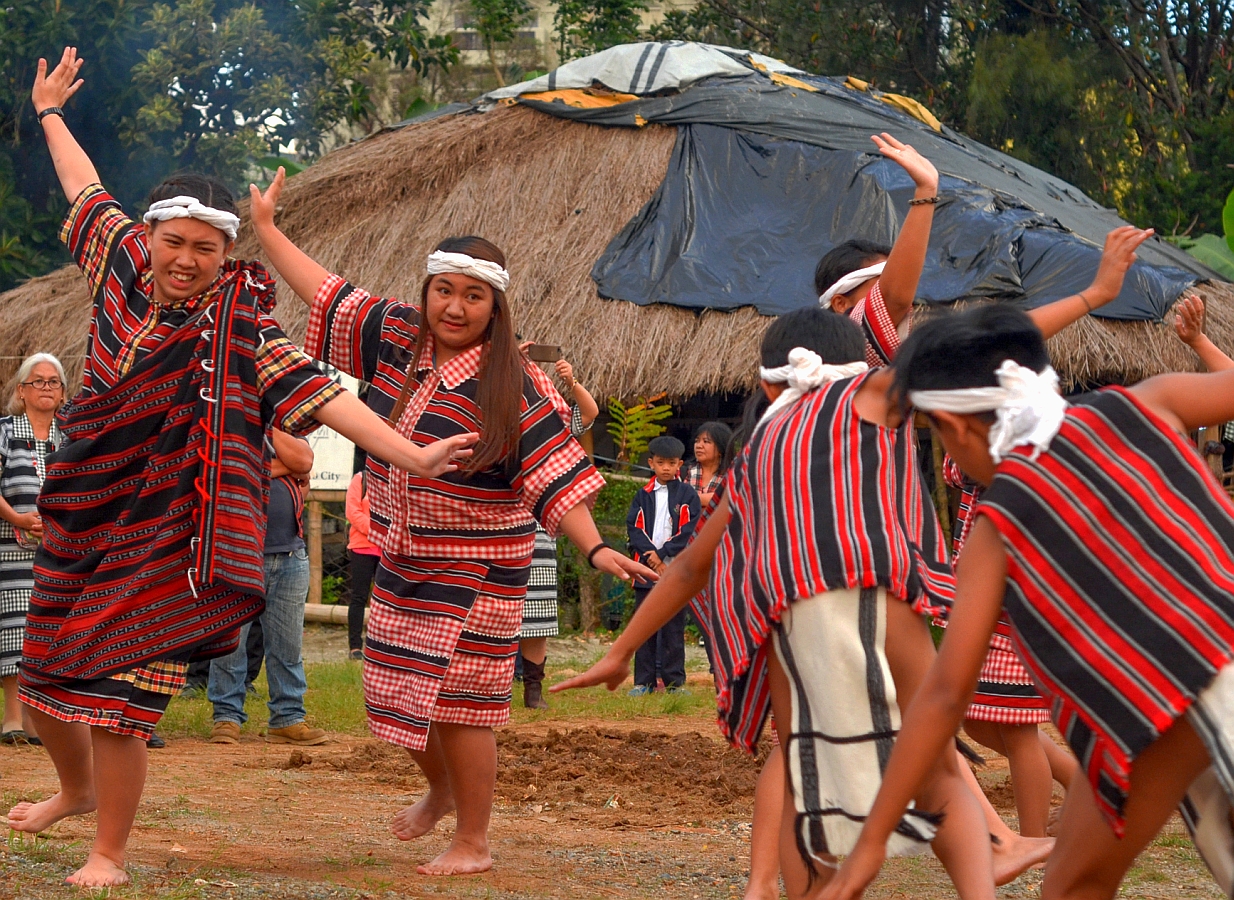NCIP secures Ibaloy lands vs legal threats

CUSTODIANS Young Ibaloys in Baguio City and Benguet province, seen here participating in a 2018 community gathering at Burnham Park, have been taught by their elders to preserve their customs, indigenous knowledge and traditional wisdom to prepare them as leaders and custodians of their clans’ ancestral properties. —KARLSTON LAPNITEN
BAGUIO CITY—A task force is studying all ancestral land titles issued in this city in the last 24 years to secure legitimate Ibaloy lands against legal challenges being pushed by government agencies and business interest groups, according to officials of the National Commission on Indigenous Peoples (NCIP) on Wednesday.
The NCIP task force is examining the status, the processing history and the anthropological evidence supporting all certificates of ancestral land titles (CALTs) issued in Baguio, said Gaspar Cayat, NCIP commissioner for the Cordillera, during the launch of this year’s indigenous peoples month at the office of the National Economic and Development Authority.
Cayat said the task force was formed in July to determine and resolve legal controversies involving ancestral lands.
Atanacio Addog, NCIP lawyer, said the review stemmed from a 2019 Supreme Court ruling that nullified Ibaloy land titles issued in 2010 over portions of Wright Park, Baguio’s oldest hotel and a section of the government reservation hosting the presidential Mansion.
The high court had voided the CALT issued to the heirs of Josephine Abanag and Cosen Piraso, which the NCIP had already established as spurious in 2015, Cayat said.
Fear
Based on an investigation report commissioned six years ago by the NCIP, the Baguio CALTs granted to Abanag, Piraso, and the heirs of Mercedes Tabon and Lauro Carantes were issued without the corresponding ancestral land title forms which would authenticate these documents.
The report found “procedural and substantive defects, which constitute fraud,” when these CALTs were awarded in 2010.
But the high court’s Second Division also stipulated in its Sept. 25, 2019, ruling that the 1997 Indigenous Peoples Rights Act (Republic Act No. 8371) “expressly excludes the city of Baguio from the application of the general provisions of the Ipra” in Section 79. This provision only honors Ibaloy lands recognized judicially or administratively before World War II.
Some Ibaloy groups fear that the court order may be used to question other Baguio ancestral land titles.
For instance, the city’s only Ibaloy ancestral domain is administered by families living inside the Camp John Hay forest reservation. Their certificate of ancestral domain title is now the subject of a nullification petition filed by the Bases Conversion and Development Authority (BCDA), which controls Camp John Hay.
The Baguio ancestral domain was the subject of a recent city council deliberation because the BCDA barred a farm-to-market road from being put up to serve the village of Happy Hollow.
The NCIP did not provide details as to how many CALTs have been issued in the city, but in a 2019 land forum, the government reviewed 757 Ibaloy claims in Baguio which were reduced to 576.
According to lawyer Marlon Bosantog, NCIP Cordillera director, he considers all CALTs as having been processed and awarded “with regularity” because these titles correct injustices committed against indigenous Filipinos across centuries of colonial rule.
Even today, indigenous peoples still struggle for respect, recognition and the right to be heard by the government, Bosantog said.